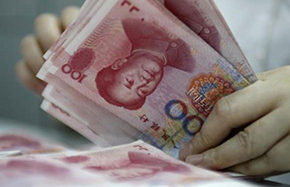Supply chain standardization will benefit China
 |
|
Phillip Austin conducted an interview while attending the China Forum on Opening and Development in Beijing. [Photo provided to China Daily] |
Standardization in the supply chain would deliver great efficiency of logistics and bring huge economic and environmental benefits to China's economy, a senior executive from a supply chain logistics solutions provider said.
Phillip Austin, president of CHEP Asia Pacific, a logistics equipment pooling and supply chain solutions company specializing in the management of standardized unit-load equipment, said that,?from a supply chain perspective, he has seen much change and progress in Chinese market.
The figures for growth of online retail in China over the past 10 years are amazing, Austin said. He was in Beijing recently to participate in the China Forum on Opening and Development held by the Chinese Academy of International Trade and Economic Cooperation under the Ministry of Commerce.
"In 2016, online retail in China totaled 5.16 trillion yuan ($777.9 billion), which alone represented 39.2 percent of the global online retail market," he said. "In China, online retail accounted for 13.5 percent of the overall retail market, which was much higher than US, EU and the global average. China clearly has an important global role to play in leading the way forward."
Secondly, Chinese consumers have become more quality and service conscious, and demand a widening range of choices in consumer staples and fresh food, so supply chains of more modern supermarket retailers are growing not only in scale but also in complexity. Accordingly, the drive for efficiency, less product damage, better warehouse and vehicle utilization, more critical on-time delivery and a greater frequency of deliveries will only continue, he says.
Moreover, various levels of government have provided initiatives and incentives for firms to adopt, standardize and modernize their fundamental supply chain infrastructure.
CHEP has been present in China since 2006 and has invested in a network of over 80 service centers, and owns and manages a pool of more than 6 million pallets, crates and containers for the benefit of its customers.
The company first introduced the principle of pallet and container pooling 70 years ago in Australia and has since extended its pooling model and asset management expertise worldwide.
Austin says CHEP pioneered this unique model in China, starting in 2006. He says it is still relatively early days in the development of a fully integrated and efficient supply chain in China.
"The market environment for all participants in the supply chain to capture fair value must be there, and will always be a part of our investment decisions. As you can see, we are working very hard to create that environment here in China, and remain optimistic of the position that China will hold in our global portfolio over time," he said.
Today, CHEP partners with many of the world's largest companies to cost effectively and efficiently, and sustainably manage a critical part of their supply chain logistics?- the issue, distribution and return of pallets, crates and containers used to transport products, fresh produce and raw materials.

























